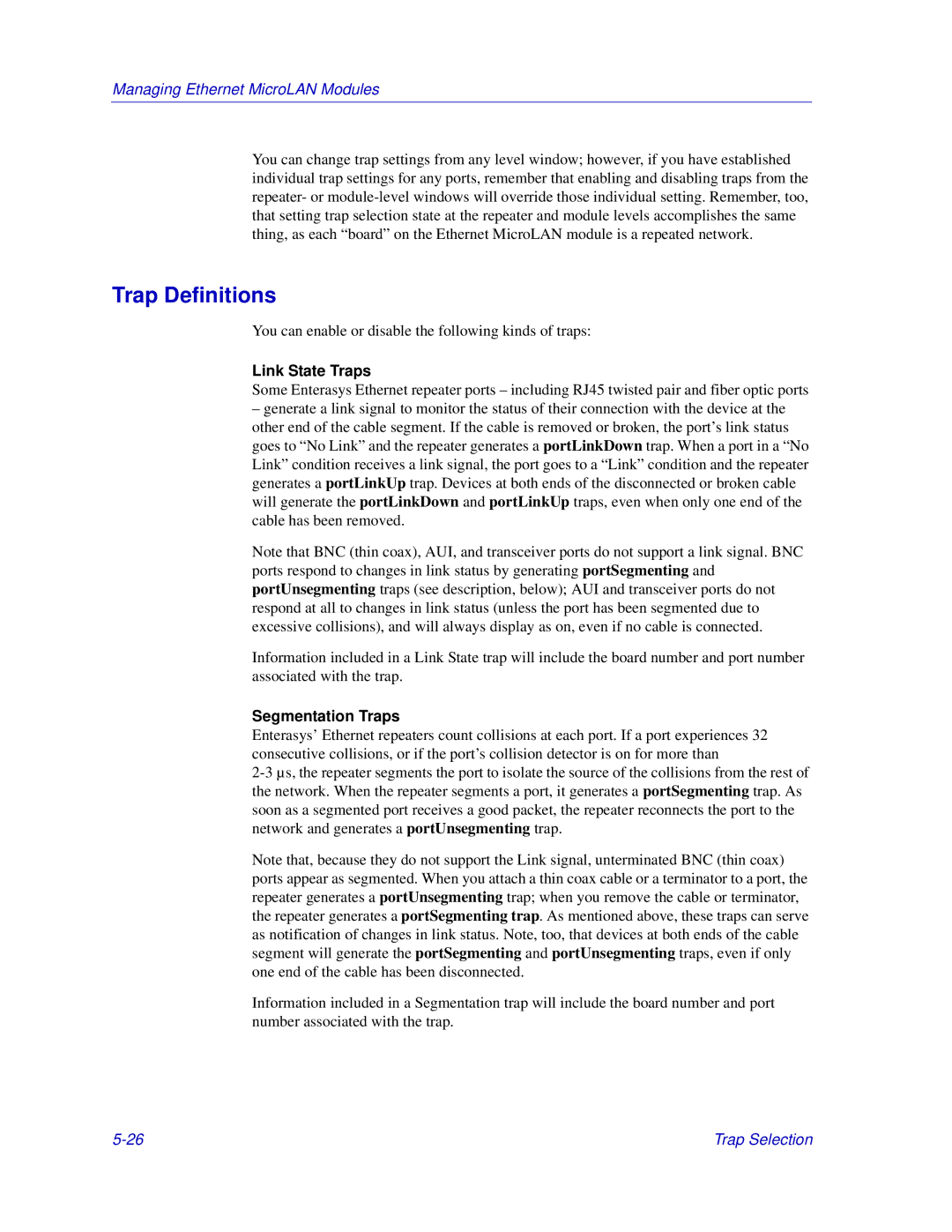Managing Ethernet MicroLAN Modules
You can change trap settings from any level window; however, if you have established individual trap settings for any ports, remember that enabling and disabling traps from the repeater- or
Trap Definitions
You can enable or disable the following kinds of traps:
Link State Traps
Some Enterasys Ethernet repeater ports – including RJ45 twisted pair and fiber optic ports
–generate a link signal to monitor the status of their connection with the device at the other end of the cable segment. If the cable is removed or broken, the port’s link status
goes to “No Link” and the repeater generates a portLinkDown trap. When a port in a “No Link” condition receives a link signal, the port goes to a “Link” condition and the repeater generates a portLinkUp trap. Devices at both ends of the disconnected or broken cable will generate the portLinkDown and portLinkUp traps, even when only one end of the cable has been removed.
Note that BNC (thin coax), AUI, and transceiver ports do not support a link signal. BNC ports respond to changes in link status by generating portSegmenting and portUnsegmenting traps (see description, below); AUI and transceiver ports do not respond at all to changes in link status (unless the port has been segmented due to excessive collisions), and will always display as on, even if no cable is connected.
Information included in a Link State trap will include the board number and port number associated with the trap.
Segmentation Traps
Enterasys’ Ethernet repeaters count collisions at each port. If a port experiences 32 consecutive collisions, or if the port’s collision detector is on for more than
Note that, because they do not support the Link signal, unterminated BNC (thin coax) ports appear as segmented. When you attach a thin coax cable or a terminator to a port, the repeater generates a portUnsegmenting trap; when you remove the cable or terminator, the repeater generates a portSegmenting trap. As mentioned above, these traps can serve as notification of changes in link status. Note, too, that devices at both ends of the cable segment will generate the portSegmenting and portUnsegmenting traps, even if only one end of the cable has been disconnected.
Information included in a Segmentation trap will include the board number and port number associated with the trap.
Trap Selection |
